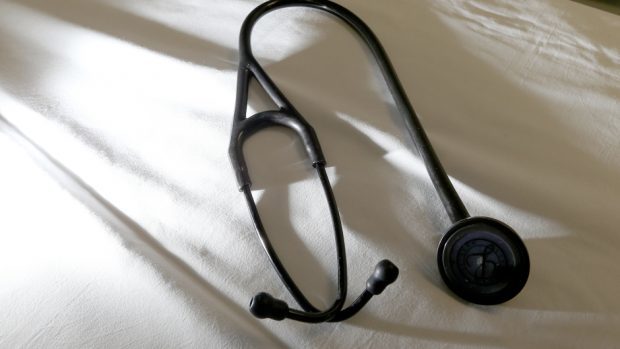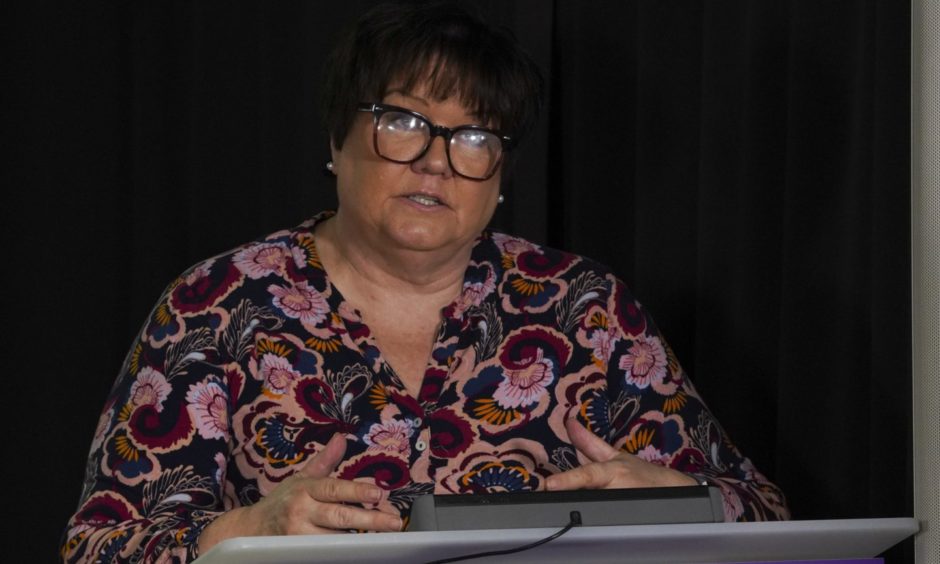Scotland’s GP shortage and cancer test delays could be to blame for higher than average number of people dying at home during the coronavirus pandemic, a leading medical expert has said.
Professor Phil Wilson of Aberdeen University warned an inadequate supply of family doctors and delays in diagnostic procedures could explain the discrepancy between deaths at home and those in hospital.
The most up-to-date data published by the National Records of Scotland (NRS) show for the week beginning on October 5, there were 374 Scottish deaths at home, a figure greater than the 276 five-yearly average for that date.
In contrast, for the same period there were 469 hospital deaths, a figure below the 554 five-yearly average.
Similarly, care home deaths have fallen to below the five-yearly average, standing at 217 compared with 245.
At the beginning of the Covid outbreak deaths soared at home, hospital and in care homes, peaking in April.
Since then the restrictions helped bring average deaths down. But whereas weekly average deaths in hospitals and care homes have fallen below the five-yearly average, the figure for people dying at home has not.
Deaths situation due to several factors
During the pandemic, experts have raised fears that the relatively high number of people dying at home has been a result of Covid discouraging people from seeking help for non-coronavirus illnesses.
There have also been concerns that the concentration of health resources on Covid has led to a deterioration of other services with the suspension of screening programmes to focus on treating the virus.
Not seeing patients face to face has been a big issue. Part of that is about patients’ reluctance to come to the surgery. GPs have got to wear full PPE now when they see a patient. So the number of face-to-face appointments has been reduced – no question of that.”
Professor Phil Wilson of Aberdeen University
Professor Wilson, an expert in primary care and rural health, suggested a variety of influences were at play including a lack of access to GPs.
“The deaths situation will be multi-factorial, some to do with patient reluctance – some to do with capacity within in the health service,” Professor Wilson said.
“I do think there is a big problem with lack of GP capacity – the fact that now there are fewer GPs, people with medical backgrounds able to actually triage.
“Not seeing patients face to face has been a big issue. Part of that is about patients’ reluctance to come to the surgery. GPs have got to wear full PPE now when they see a patient. So the number of face-to-face appointments has been reduced – no question of that.
“That will have inevitably led to some loss of the potential for early diagnosis of what the technical terms is: primary care sensitive conditions. If you don’t lay your hands on somebody, you won’t get it right.”
He added: “It is complicated. I’m not going to blame the government for this except in as far as I don’t think we have done enough to ensure there is an adequate supply of GPs.”
Doctors’ leaders have long been concerned about GP shortages and last year Audit Scotland warned that the Scottish Government would struggle to meet its target of recruiting an extra 800 doctors over the next decade.
Professor Wilson also warned that people would have been “more reluctant” to attend emergency departments and said the “scaling down” of hospital services would have led to diagnostic test delays.
Concern over plummeting bowel cancer tests
“The boards will all say, of course, they have maintained essential services and so on. But there are certain conditions, like bowel cancer, for example, where there is really good evidence that diagnostic delay increases mortality,” Professor Wilson said.
“There are many cancers where it doesn’t make a great deal of difference but in bowel cancer it certainly does. We know that there are reductions in bowel cancer diagnostic tests.
“The standard tests for bowel cancer if you have got symptoms would be to have a colonoscopy and the number of colonoscopies has plummeted.”
‘I don’t blame the politicians for this’
Professor Wilson said it would be the patients with the less obvious symptoms who would be most affected, rather than those with “red flag” warning signs.
“If someone comes along with anaemia, rectal bleeding and weight loss, they are going to be assessed reasonably quickly,” he said.
“It is more the people with slightly less obvious (symptoms). In terms of bowel cancer – for example, maybe someone who has got some weight loss and alternation in bowel habits, they would not be put quite so much to the top of the pile.
“It is likely there will be non-blue light emergency cases where there will have been some diagnostic delay and that will have led to some deaths.”
He added: “I don’t blame the politicians for this. They are in a really difficult situation.”
First minister on need for proper analysis of figures
At her daily coronavirus briefing, First Minister Nicola Sturgeon said she did not want to speculate on the figures.
She said it was “really important” that analysts, statisticians and health experts gave proper consideration to the numbers.
“The different patterns of care that we have seen over the course of this pandemic will be a factor there,” Ms Sturgeon said. “But there may be other factors at play that have to be properly analysed and understood.”
Chief Nursing Officer Fiona McQueen, who was also at the briefing, said that throughout the pandemic people with symptoms had been urged to seek medical help.
Ms McQueen added that statistics were “incredibly helpful” but warned it sometimes takes “months or years” to understand them.
“But if more people are dying at home it may be because that is the place of death that they wish to die – their choice,” Ms McQueen said.
“But also if someone has not gone to their GP and has gone too late, then often that late presentation of symptoms would take them to a hospital. So I do think we have to be very careful about making assumptions, because I would have thought that late presentation would mean hospital admission for treatment rather than actually no presentation at all and staying at home without treatment.”
Ms McQueen reminded the public to access NHS24 or GP services if they thought they needed help.

